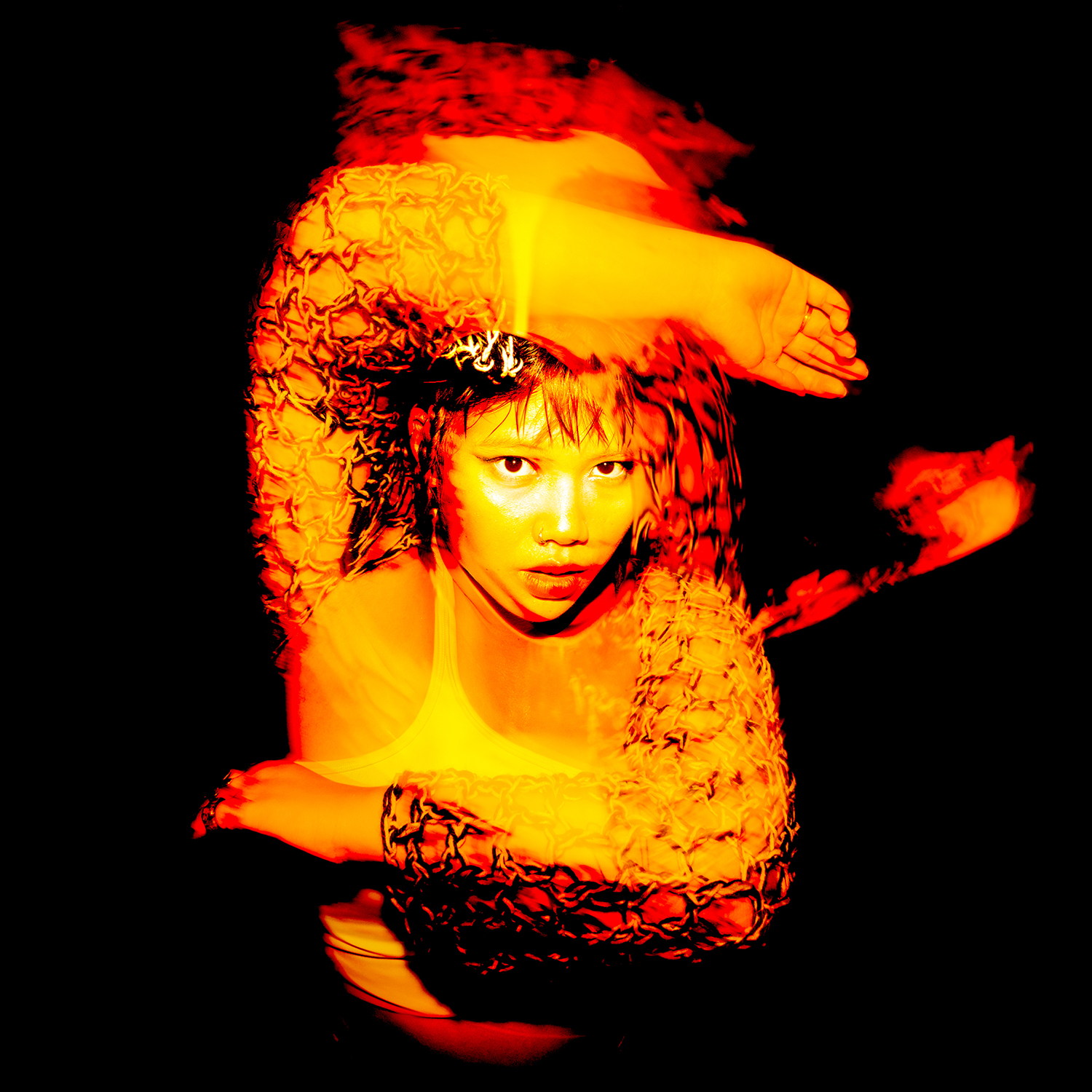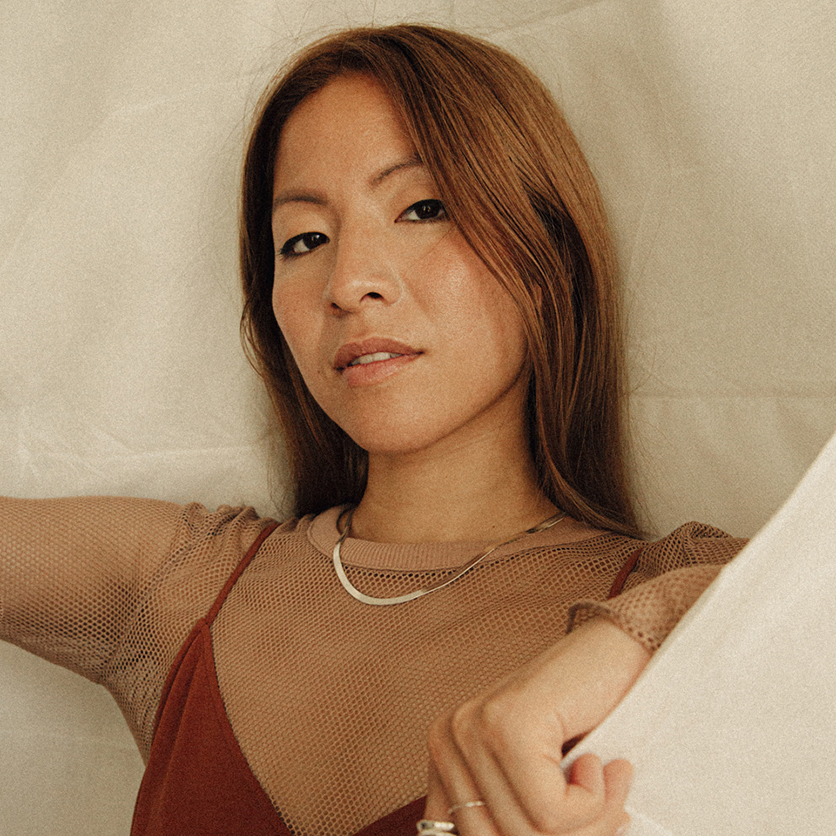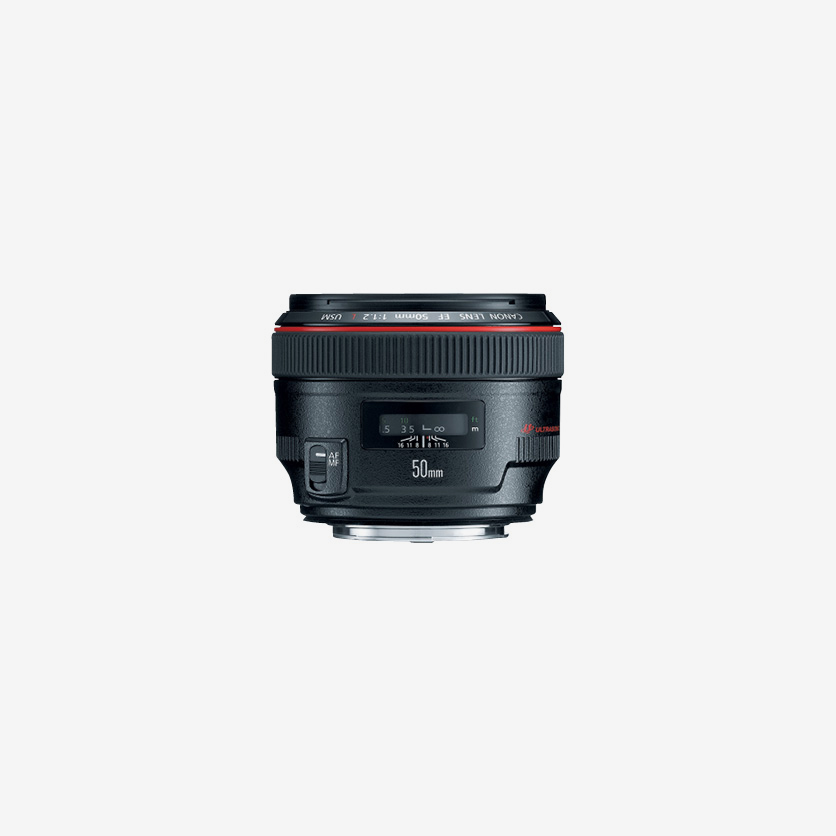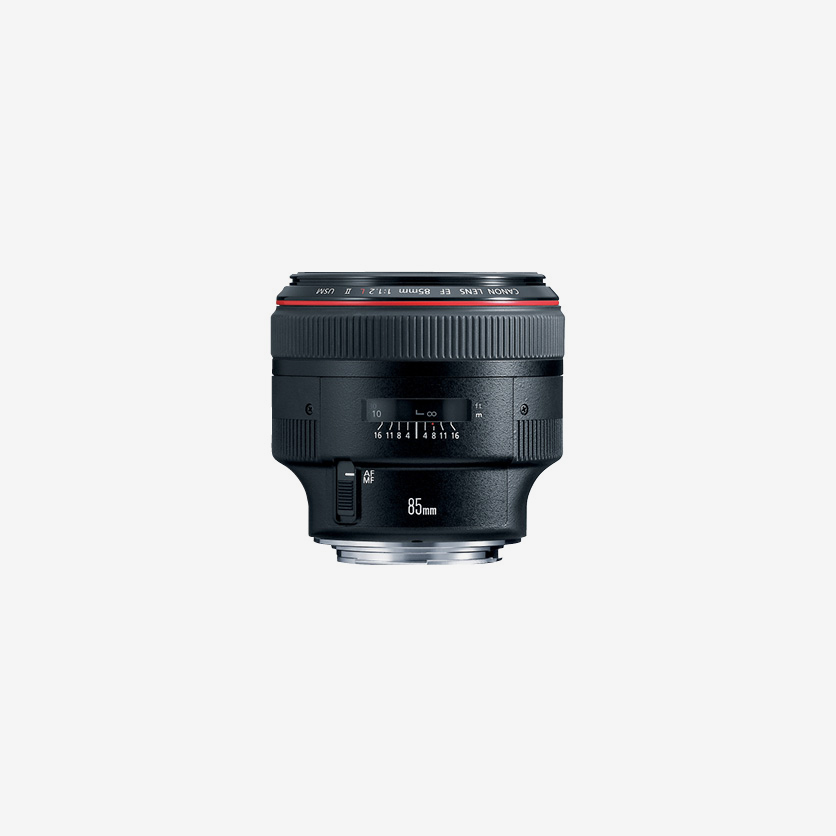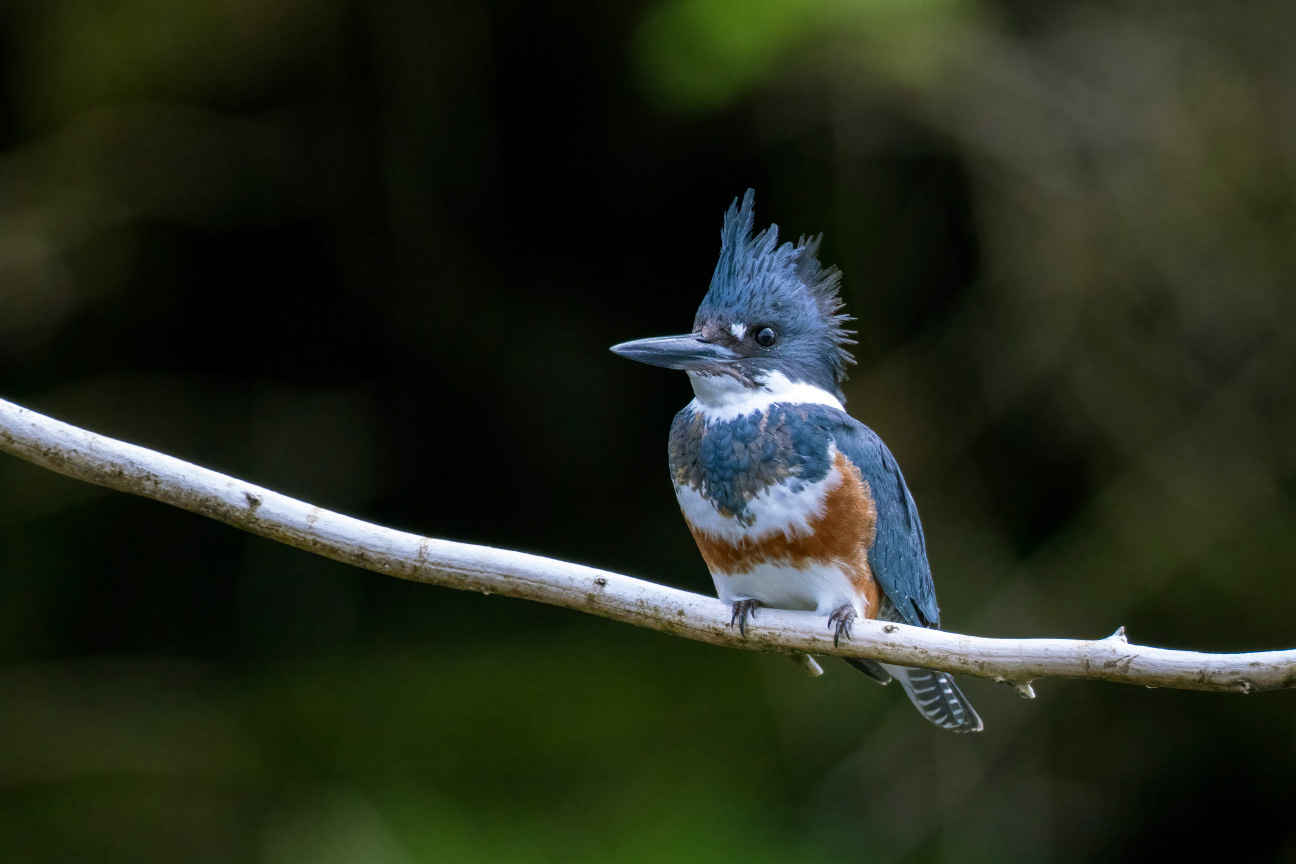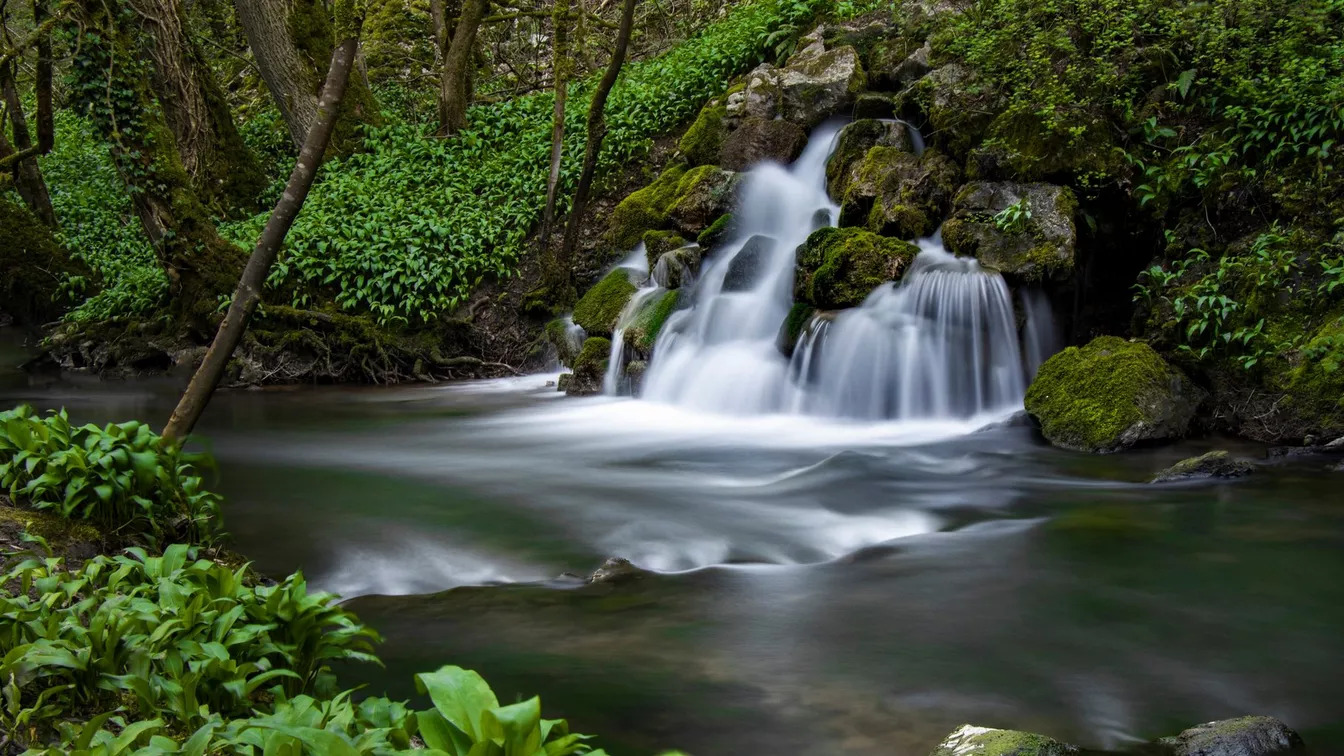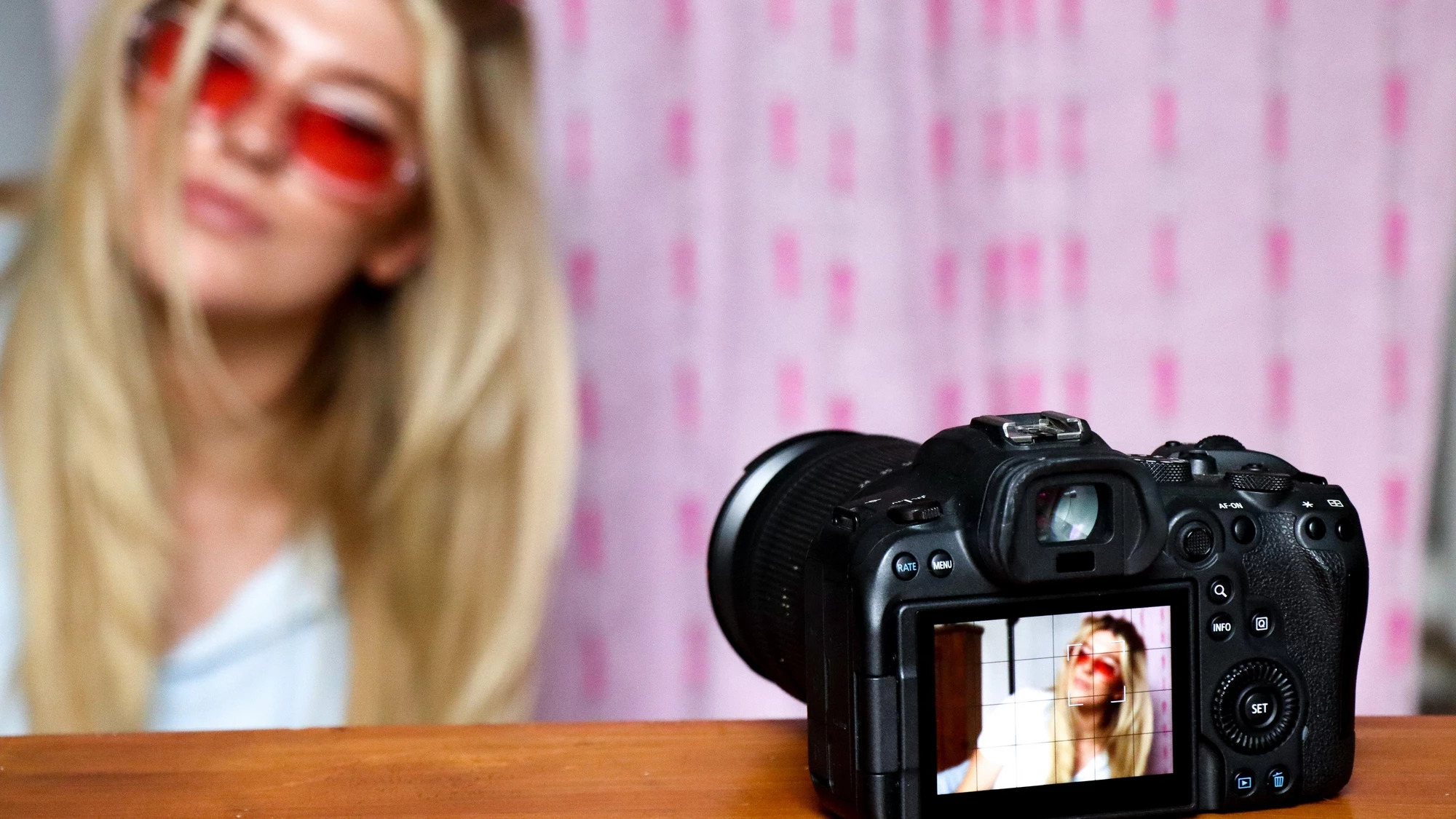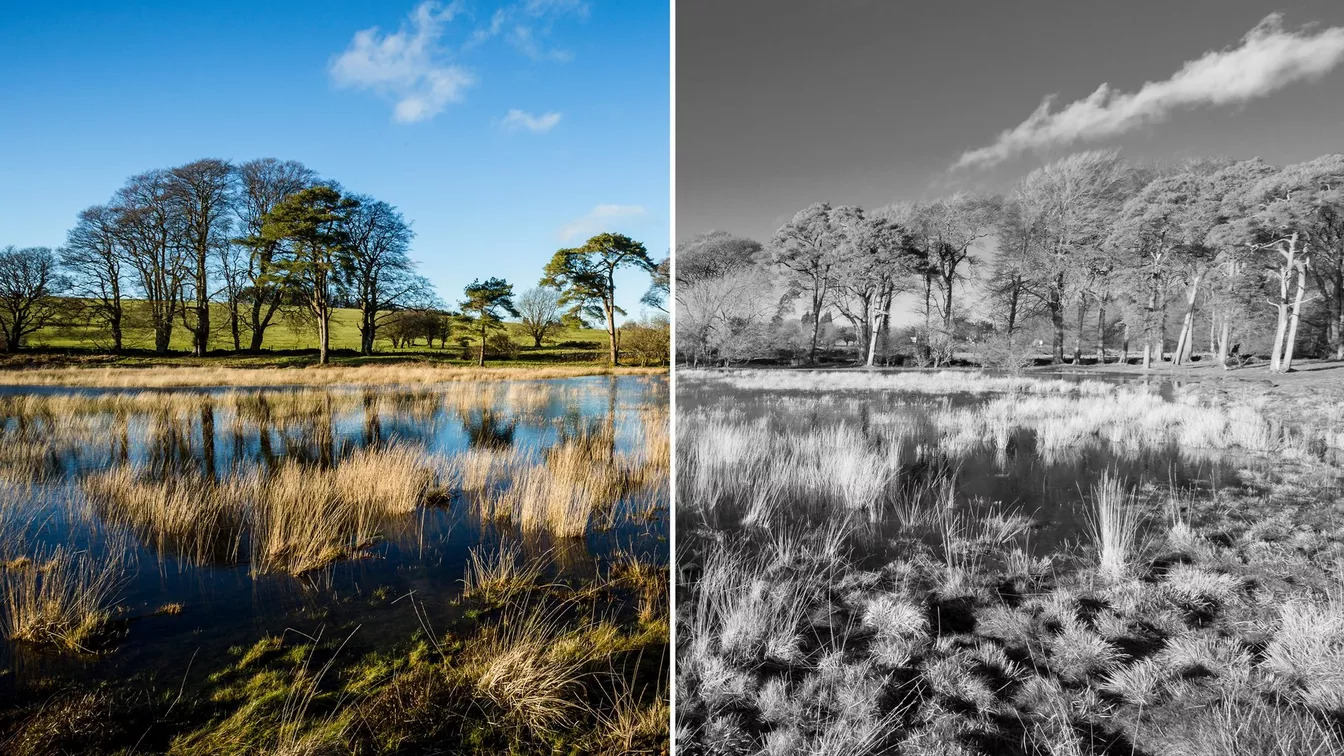Art director and photographer Pam Lau knows the only way to achieve real success is to pay it forward. That’s why she created Ecru Club, a grassroots initiative dedicated to connection and community over competition.
Start with what you love
Pam Lau’s love of photography runs deep. Inspired by a family photo album, Lau picked up her first camera (her dad’s old film camera from the seventies, something we’ve all searched on Etsy for recently) at 14. “I love old pictures of my parents from before I was born. I love them because they weren’t taken with a certain purpose or to look a certain way, so something about them felt very sincere.”
Through high school, Lau was the resident photographer for her group of friends, but it wasn’t until she was about to graduate from University (from a field completely unrelated to photography) that her future in the visual arts started to click. “I am self-taught,” Lau says, “and freelancing was something I started during school because people said ‘okay, we need to shoot this event, and Lau has a camera'”.
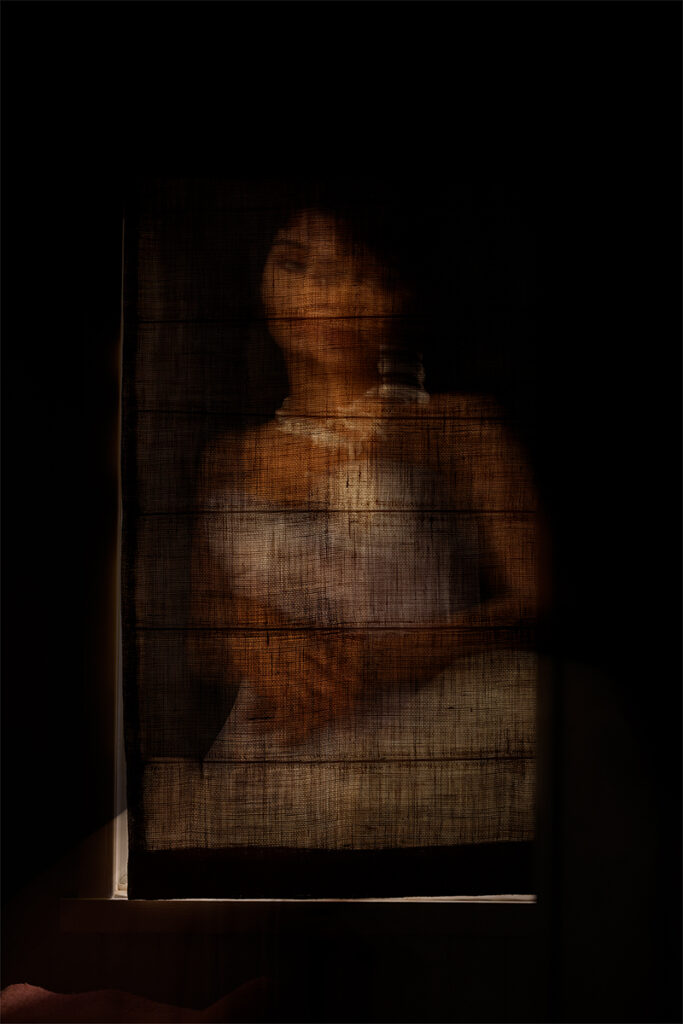
A never-ending journey of growth
Lau’s creative journey as an art director began with a realization: It’s not just about the photos, but about the intention and audience behind them. As she explored and experimented with new techniques, Lau gained fresh insights and a deeper understanding of her craft. It’s this curious and adventurous spirit that ultimately led to the growth and transformation of Lau’s work. “When I started, I was just doing events where I waited for something to appear before the camera. But then I realized that the more control I had, whether through direction or planning beforehand, the better the result. I love being able to take control of what I’m seeing instead of waiting for it to happen.”
Like many emerging photographers Lau struggled with finding her own personal style and feeling pressure to mold herself into what she thought clients wanted to see. To capture truly unique and authentic photos, you need to trust your instincts. This takes time and patience, but it all starts with believing in yourself and your abilities.”I don’t know if there’s a direct process or balance to it, but I find that the more I listen to my intuition and speak up when I have suggestions or concerns for a client, the more my personal touch shines through in my work.”
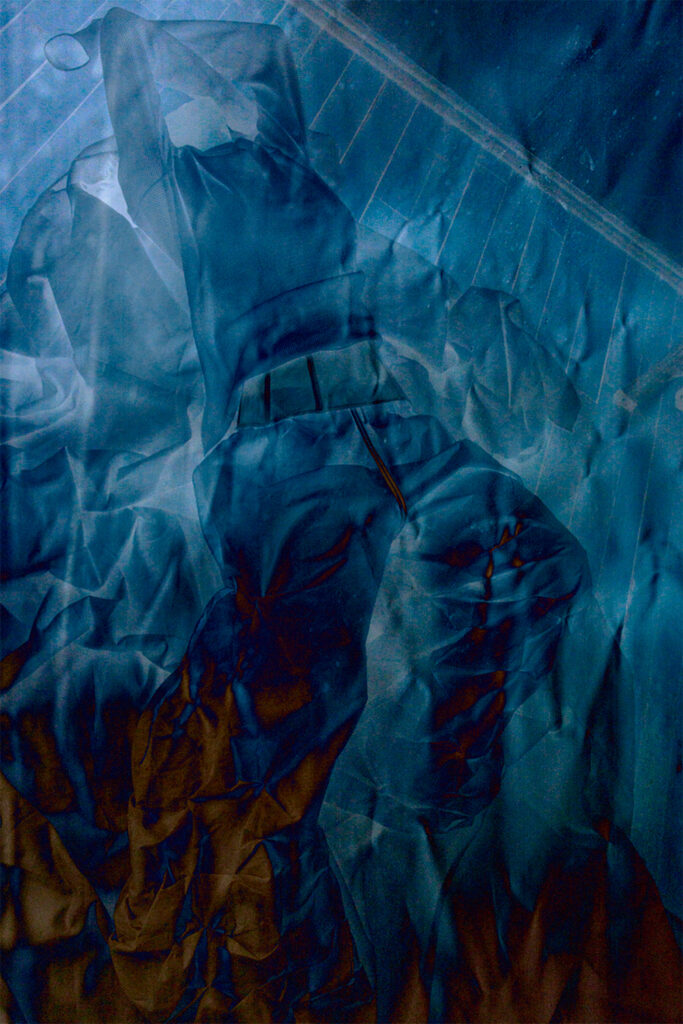
Revealing your inner selfie
“Photography for me is a form of world building. It’s a form of self-exploration. I can look at other people’s work and glean from that kind of what’s important to them and what their values are.”
Lately what Lau is trying to express through her photography is how she wants to feel. “I recently went on a trip to Oaxaca and I found that the environment and the light had a strong influence on me. Now, I want my work to have more clarity and a certain calmness to it.”
As Lau learned, personal setbacks can force you to re-evaluate your priorities and values. Life also happens to have one wicked sense of humour when it knows your lifestyle involves a lot of steps.
“A couple years ago I had a climbing (knee) injury that shifted my whole life around. I had a nice studio, but it was up four flights of stairs with no elevator. I had a nice loft. But then I couldn’t work for a few months and everything got upended.”
“I wouldn’t even think to say it happened for a reason, it just happened. But it did force me to ask myself, what am I without my work? Who am I if I can’t create?”
Lau is an advocate for taking care of your mental health as an important facet in fostering your creativity. Through therapy and introspection, Lau realized the importance of being intentional with her energy and focusing on what is truly important to her.
“I saw a therapist during this time. I did a lot of crying and unpacking. And that helped me understand that before I was very focused on external validation. You know, clients, getting an award, comparison, worrying about followers. But it never felt fulfilling because I didn’t have that personal confidence in myself.”
Self-doubt is inevitable in photography, but it can be detrimental to your artistic development. That’s why it’s so important to find a community to encourage and support each other. “Over the years, Canon Creator Lab has been one of those spaces for me. Whether as a mentor and leading workshops, contributing to in-person creative experiences in Toronto and Montréal, or attending a talk as a participant, I’m re-energized and reminded of why I do photography.”
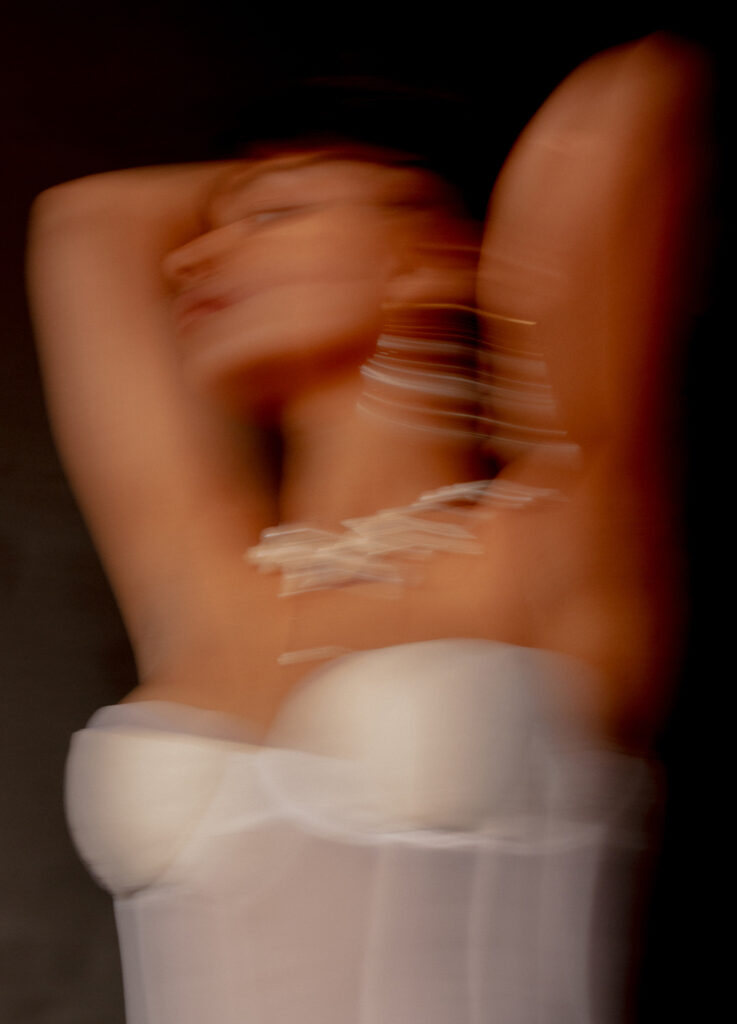
Forever young
So much goes on behind the lens – that’s the magic you don’t see. “Photography is interesting because most of the time you only see the end result and the image, but it really takes a lot of work to reach a certain point.”
Lau believes trust is crucial in photography, as it helps to build connections and empathy between the photographer and their subject. “If you’re putting someone in front of your lens, it’s a very vulnerable thing.”
Developing trust and connection with the subject comes through practice and understanding. “I used to hate getting my photo taken because I’m giving up control. I think anything to understand another person is to just try to put yourself in their shoes. If you’re trying to understand how to work with a model, then try modeling yourself or try posing for other photographers, and you’ll learn a lot.”
Lau encourages artists not to lose sight of their artistic vision when it comes to photography. By bringing your unique perspective to your work, you can create images that are truly memorable. Don’t be afraid to take creative risks and explore your own artistic style – it’s what sets you apart as a photographer. “You can take two photographers and put them in the same room, same subject, and set up everything but what they take is just so uniquely different.”
Photography skills aren’t just limited to the studio, for Lau it’s helped her become more open-minded. “Photography for me has been this kind of wonderful way to be kind of a forever kid and be very curious and learn about different things.”
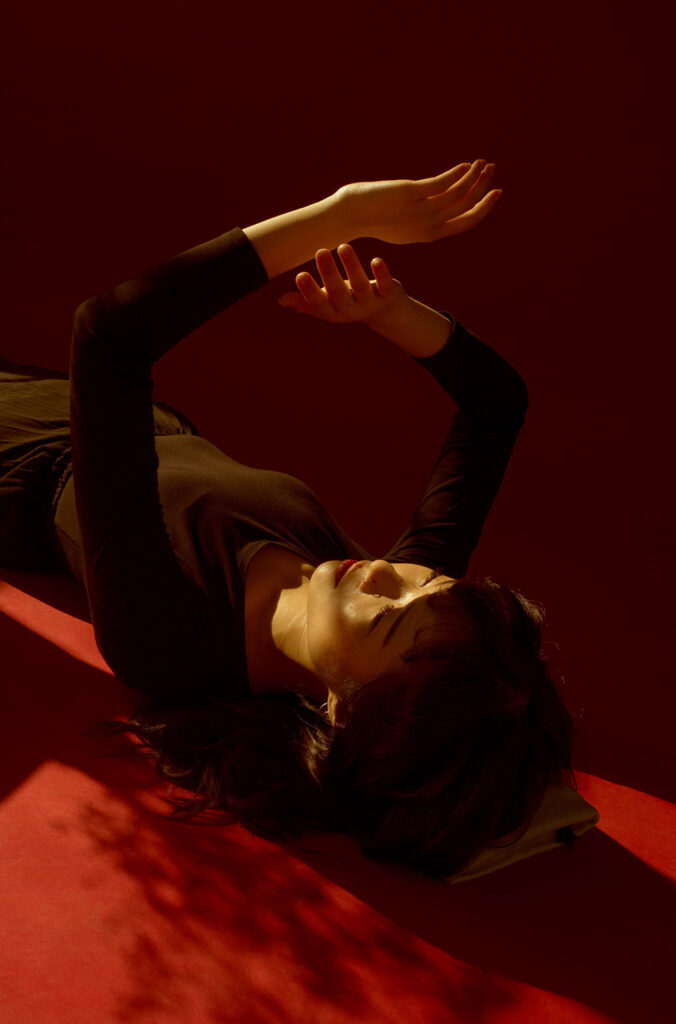
Nurturing the next generation
Teaching and mentorship is a big priority for Lau since it helps her share her knowledge and help others grow. That’s why she, alongside her partner Jimmy Vi, launched Ecru Club, a grassroots initiative founded by self-taught photographers and directors. “We do programming that addresses the financial, institutional and cultural barriers to emerging artists.
Lau feeds off the energy of the people around her, so having new talent with such a willingness to learn is a rewarding environment. “For the past two years we’ve had funding through outreach in the city of Toronto to run free concept development workshops for self-taught youth PanAsian filmmakers and photographers.”
Photographers have a big responsibility in controlling someone’s image and how they’re perceived, making it crucial to promote body positivity, inclusivity, and diversity in their work. “Where you put your lens is where you put your attention. I think taking that into light in terms of making room for new perspectives, that comes with just shaking up who’s awarded opportunities and gigs.”
Through her work with Ecru Club Lau is not only addressing the traditional barriers like technical skills or knowledge. “A big barrier is actually just personal confidence and the willingness or the idea to think that ‘what I have to say is important’.”
Fear of competition and scarcity can hold back photographers from opening doors for others. For Lau, an abundant mentality involves recognizing that you did not make it as far as you did alone and helping others is everyone’s responsibility. “There were people that took chances on me, so I consider it a duty of care to help others. And then you start to realize that because we’re in such a collaborative industry, the more people that you share, the more people that you support and help them, it’s kind of a self-giving ecosystem.”
Canon’s Futures program facilitates an instant community that breaks down geographical boundaries and provides a unique opportunity for individuals from less densely populated areas or smaller cities. “The Futures program is great because it’s accessible to people across Canada. Usually geographic proximity puts you at an advantage because you have access to those connections. With this program you get access to support, guidance and gear without having to upend your whole life.” The program’s ability to inspire and empower individuals to pursue their creative aspirations and expand their photographic horizons without having to pay rent in Toronto is truly a gift, as anyone who pays rent in Toronto knows.
Witnessing the motivation and determination of Futures applicants left a strong impression on Lau. “What moved me a lot in the applications was seeing people that had different pressures in their life or for some reason didn’t pursue photography, and saw this program as a way for them to make a big change and really go for it.”
Sharpen your focus
They say hindsight is 20/20, but when you’ve got a sharp eye, it’s even clearer. Lau’s advice for emerging photographers is insightful for all creatives. “First I would take time to understand yourself, not just as a photographer, but as a person. At least to understand not just the motivation of why you create, but understand the environments that you thrive in.”
When you understand the environments that you thrive in, you start to understand the kind of work that you like to do. This is an important part of the process for Lau. “That’s how I find the intuition builds the more that you act on your values. The more that you act on your ideas, regardless of what you fear like other peoples might think, then that becomes stronger.”
Lau’s involvement in Canon’s programs has brought a deep sense of alignment and purpose. “It’s been very affirming to me to know what I’m interested in and the work I’m doing is getting good feedback from the mentees. I think it’s really interesting that mentorship goes both ways, that you can also learn from the people that you’re mentoring because they have a different eye, a different perspective, a different lens on things.”
Mentorship goes beyond just the length of the program.“It’s a relationship that continues. It’s really nice to see people grow and move forward in their careers. That’s the genuine connection and authenticity that comes from a community of people who are really there to support.”
Art imitates life
Attention is a scarce resource, and Lau admits it can be a challenge to focus on what she wants to do amidst distractions. “The biggest challenge for me is to just quiet everything around me and focus on what I want to do.”
Tactile work can be a helpful way to focus and engage in a creative process. “Since before when my mobility was more limited, I would just go on a walk and collect flowers. Then I started pressing them. Not really with anything in mind, but I think it’s starting to get me somewhere.”
The process of creating is just as important as the final output. It’s important to remember what brings us joy in our creative pursuits and for Lau that joy is learning and crafting and experimenting. “Photography is a reflection of art and life. And if you’re not living, if you’re not trying to enrich yourself, you know, outside of just focusing on work, then you won’t have as much to say.”







